France and Germany will test travelers from high-risk countries upon arrival
From Alexander Durie, Pierre Buet and Nadine Schmidt
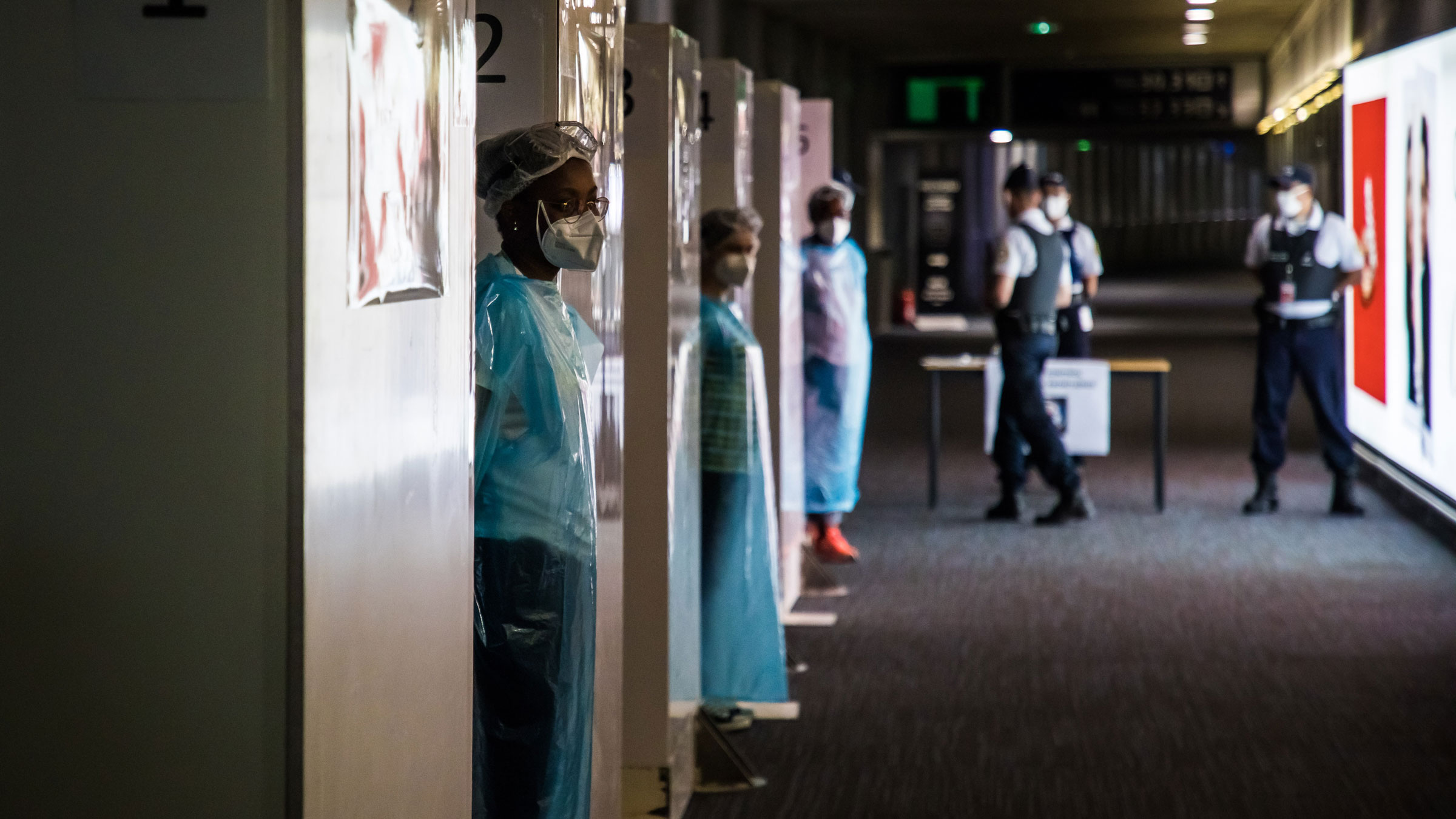 Health workers wait for incoming travelers at the Charles de Gaulle Airport outside of Paris on Friday. Christophe Petit Tesson/Pool/AFP/Getty Images
Health workers wait for incoming travelers at the Charles de Gaulle Airport outside of Paris on Friday. Christophe Petit Tesson/Pool/AFP/Getty ImagesFrance and Germany have announced that they will introduce coronavirus testing on arrival for passengers traveling from high-risk countries, including the United States, with a mandatory 14-day quarantine period for those who test positive.
Speaking during a visit to Charles de Gaulle Airport in Paris on Friday, French Prime Minister Jean Castex confirmed a list of 16 “red” countries whose travelers will be subjected to "systematic" testing upon arrival.
According to the prime minister’s office, the 16 countries include South Africa, Algeria, Bahrain, Brazil, United Arab Emirates, United States, India, Israel, Kuwait, Madagascar, Oman, Panama, Peru, Qatar, Serbia and Turkey.
Travelers who test positive on arrival in France will be subjected to a 14-day quarantine "until their situation is back to normal," the prime minister added, telling reporters that the new policy is expected to be enforced in “the next few days.”
Germany also introduced a new voluntary testing policy for travelers arriving from high-risk countries, with those declining to take the test required to self-isolate for 14 days.
“We also decided that people returning from high-risk countries should be tested,” Kalayci continued. The cost of the tests will also be covered by the German authorities, the health minister said.
"The current infection figures show once again that we are still in the middle of the coronavirus pandemic, and increasing travel increases the risk of more infections being brought back into Germany,” Kalyci added.
Covid-19 can be a prolonged illness, even for young adults, CDC report says
From CNN’s Jen Christensen
Covid-19 can be a prolonged illness, even among young adults without underlying chronic medical conditions, the US Centers for Disease Control and Prevention reported Friday.
Thirty-five percent of those surveyed by the agency said they still weren’t back to their usual good health even two to three weeks after testing positive for coronavirus.
The CDC had survey results from 292 people who had a positive test for Covid-19 and were treated as outpatients from April 15 until June 25. The interviews were done 14 to 21 days after people were originally tested. The results were reported in the CDC’s Morbidity and Mortality Weekly Report on Friday.
Of those surveyed, 94% said they had at least one symptom when they went in for a Covid-19 test. People reported having a median number of seven of the 17 symptoms listed by the CDC. Fatigue was the most common complaint, followed by cough and a headache.
For the people whose symptoms lingered, 43% said they had a cough, 35% said they felt tired, and 29% said they were short of breath. The median time they had been interviewed was 16 days from when they tested positive.
Sixty-five percent of those surveyed said they had returned to their usual state of health between five and 12 days after they had a positive Covid-19 test.
Age seemed to play a role in whether someone still felt sick weeks after a positive test. More of the people in the 50-and-older demographic, 47%, said they still had symptoms weeks after their test. By comparison, for people ages 18 to 34, 26% said they still had symptoms. For people in the 35 to 49 age range, 32% said they still weren’t back to full health.
The more chronic conditions someone had, the more likely it was that they still had lingering symptoms. But even 1 in 5 younger people ages 18 to 34 who had no chronic medical conditions said they had not fully recovered.
The authors argue that public health leaders should remind people who may not take Covid-19 seriously that even younger, healthier adults who get a milder form of the disease can have symptoms for weeks.
People need to take precautions, the CDC said, and frequently wash their hands, wear a mask in public and keep physical distance from others to slow the spread of Covid-19.
Covid-19 vaccine likely won't be "widely available" until "several months" into 2021, Fauci says
From CNN's Gisela Crespo
A Covid-19 likely won't be "widely available" to people in the US until "several months” into next year, Dr. Anthony Fauci, the director of the National Institute of Allergy and Infectious Diseases, said Friday.
It is a clear acknowledgement that although the federal government hopes at least one experimental vaccine candidate would be proven to safely protect people against coronavirus before the end of this year, it would take months to get through the approval process, manufactured and widely distributed.
"I think the key word there, Bob, is widely available,” Fauci said.
"I think we will likely know whether a vaccine is safe and effective given the number of Phase 3 trials that are starting literally next week,” Fauci added. “And there are some in other countries that are already ongoing — that we should know by the end of December of this year, the beginning of next year."
Fauci noted that some companies have claimed they could have a vaccine available before the end of the year. “There are some companies that claim that might be a month or two sooner. I'm a little skeptical about that, but, you know, anything is possible,” he said.
Miami mayor on schools: "I don't think it looks good for day-one opening right now"
From CNN's Adrienne Vogt
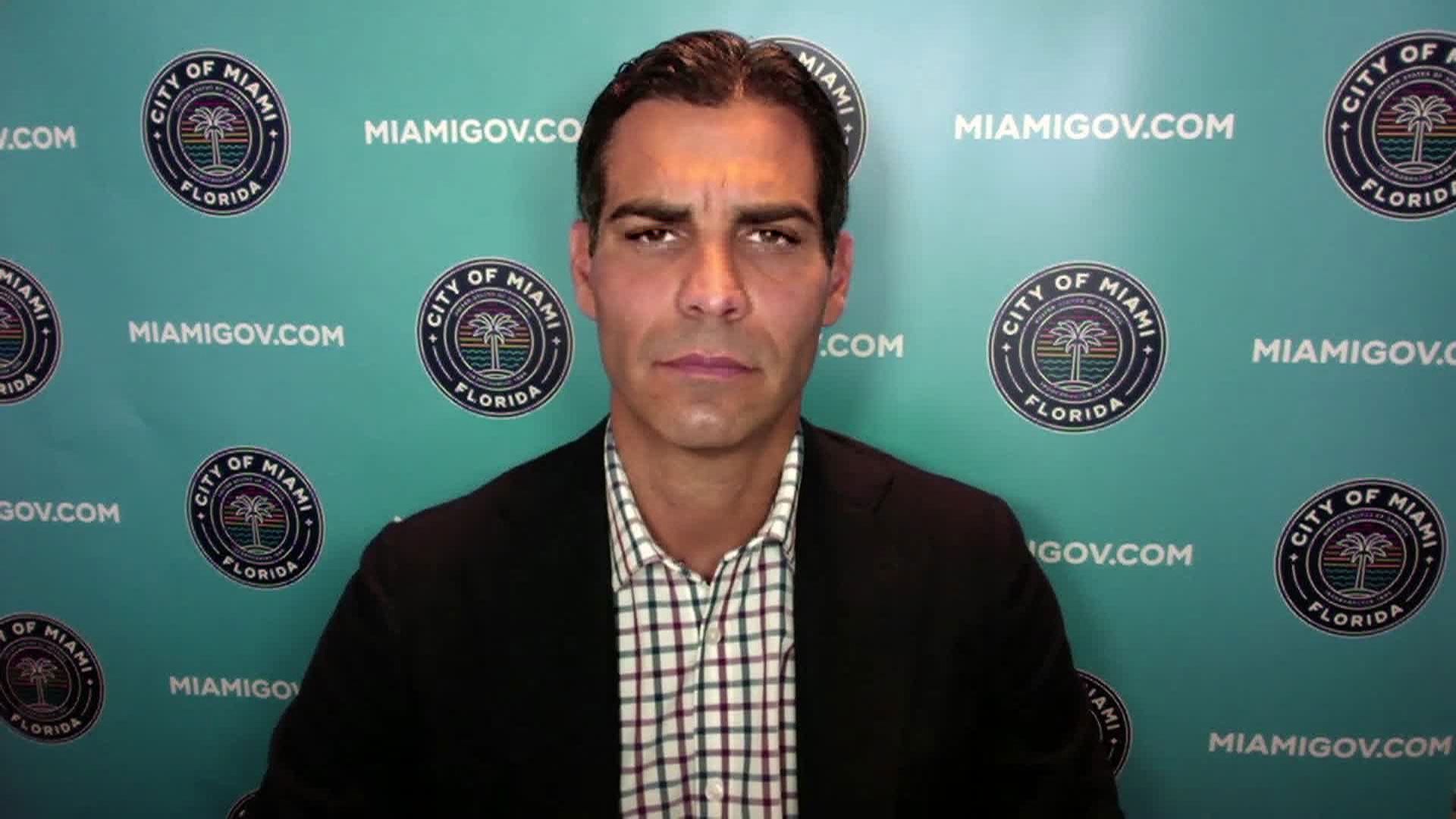
Miami Mayor Francis Suarez is hesitant about reopening schools, as coronavirus continues to spread in Florida.
The city is working with parents and teachers on the decision to offer in-person, blended or all-remote learning. Miami-Dade County Public Schools cannot offer in-person instruction until the region enters phase two.
“You're talking about 350,000 students plus another 40,000 teachers, so you're putting a tremendous amount of people back into the economy in a way that could end up being a super-spreader event,” Suarez said.
Researchers in South Korea have found that children between the ages of 10 and 19 can transmit Covid-19 within a household just as much as adults, according to new research published in a Centers for Disease Control and Prevention journal.
“I don't see how throwing 400,000 people into the mix, children and adults, is going to help us right now,” Suarez said.
Hear the interview:
DC mayor issues 14-day quarantine for people traveling from hotspots
From CNN's Lauren Koenig and Alison Main
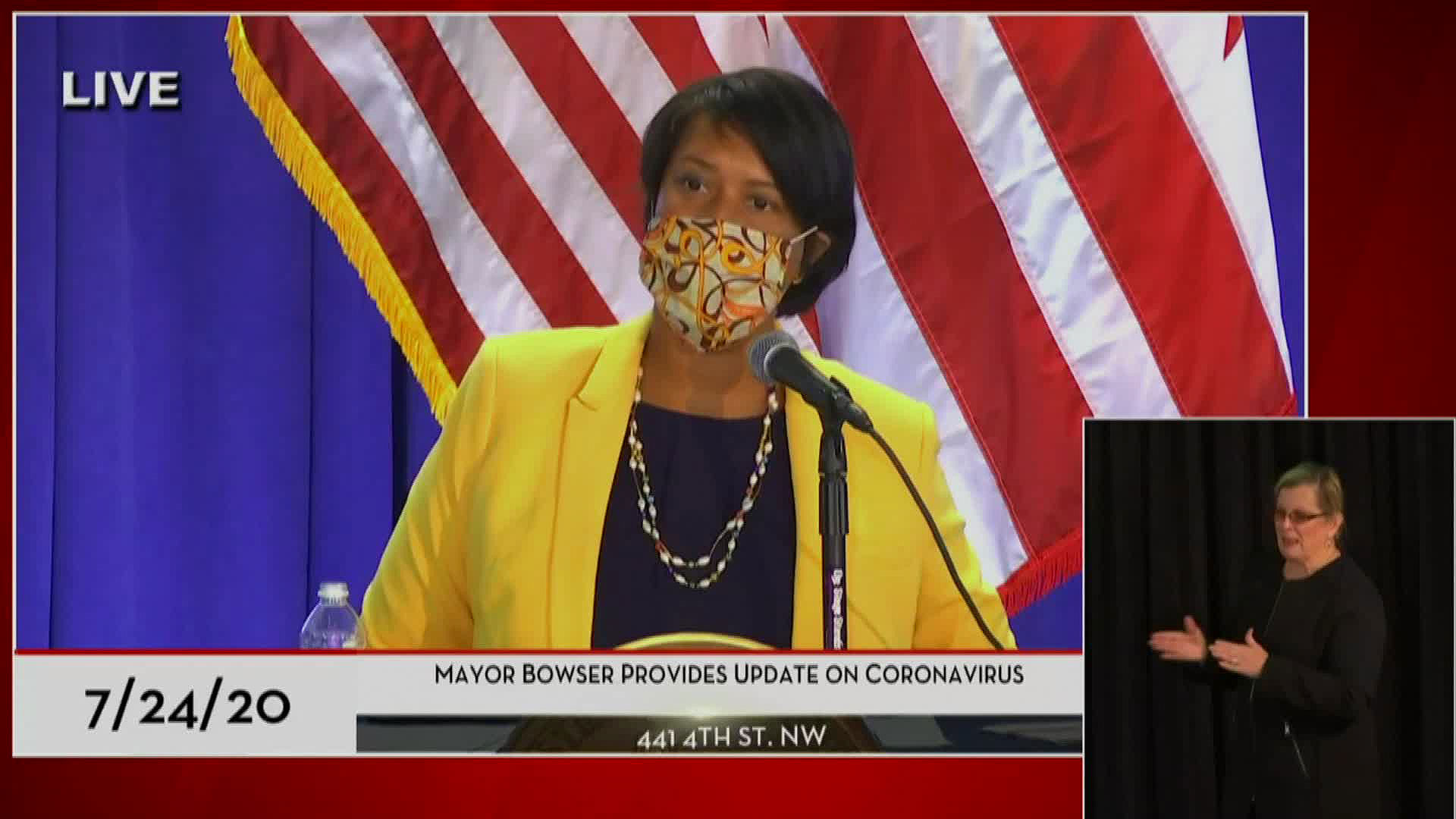 Office of Mayor Bowser
Office of Mayor BowserWashington, DC, Mayor Muriel Bowser announced that she is issuing a mandatory 14-day self-quarantine order for people returning from high-risk areas outside of the district.
Starting Monday, anyone coming into the district who is not traveling for essential activity will be required to quarantine for 14 days. DC health will publish a list of high-risk locations every two weeks. The order excludes Maryland and Virginia.
High-risk areas are considered to be locations where the seven-day moving average of daily new Covid-19 cases is 10 or more per 100,000 people.
The order will last until Oct. 9 when the current public health emergency declaration expires. Both can be extended or cut short depending on the need.
Bowser said universities in Washington will be required to maintain lists of students who traveled from high-risk areas and these students must self-quarantine on campus or in off-campus housing when they return.
On Friday, the district reported 78 new cases of Covid-19 and no new deaths related to the virus.
You'll have to wear a mask in Vermont when you can't social distance
From CNN’s Ganesh Setty
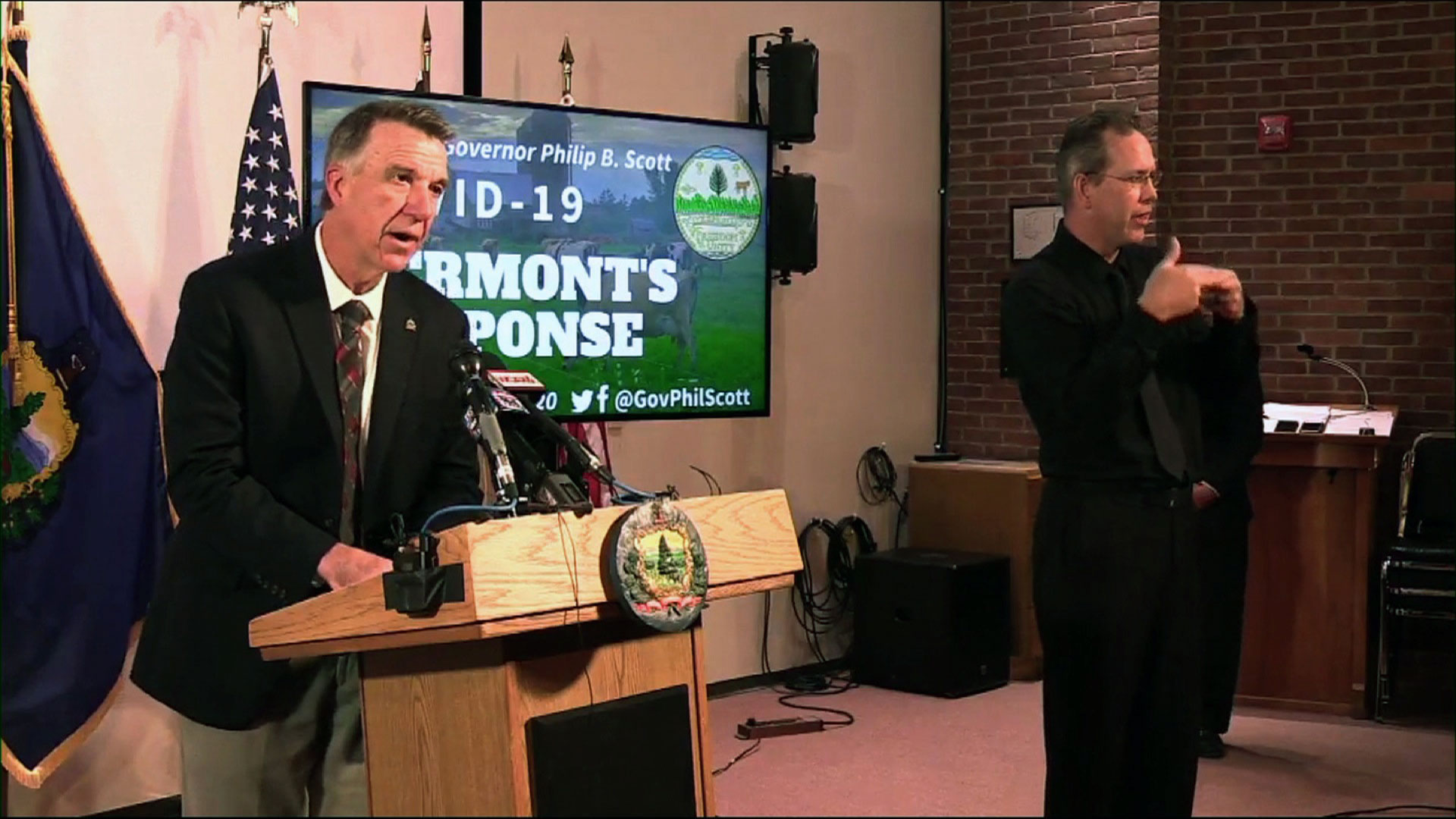 Vermont Gov. Phil Scott holds a news conference on Friday. ORCA Media
Vermont Gov. Phil Scott holds a news conference on Friday. ORCA MediaThe state of Vermont will have a mask mandate starting Aug. 1 for both indoor and outdoor activities where social distancing is not possible, Republican Gov. Phil Scott announced during a news conference today.
Pointing to rising Covid-19 cases in the Sun Belt and data suggesting that the virus is inching toward the northeast again, the governor said he signed the order to protect the gains that the state had already made thus far.
The order applies to everyone above the age of two, with some exceptions for those eating or drinking, engaging in strenuous physical activity like exercise and for those who have medical condition complicated by facial coverings, said Scott.
Those with a medical condition do not need to provide documentation due to privacy concerns, added the governor, conceding that the mandate will be difficult to enforce.
Business will be required to notify customers of the policy through signage and will be allowed to refuse service to customers refusing to wear a mask, explained Scott.
“Unfortunately this issue has become polarized, and I am still worried that a mandate will create conflict and resistance,” said Scott.
Fauci praises Trump's "short and crisp" coronavirus briefings
From CNN's Gisela Crespo
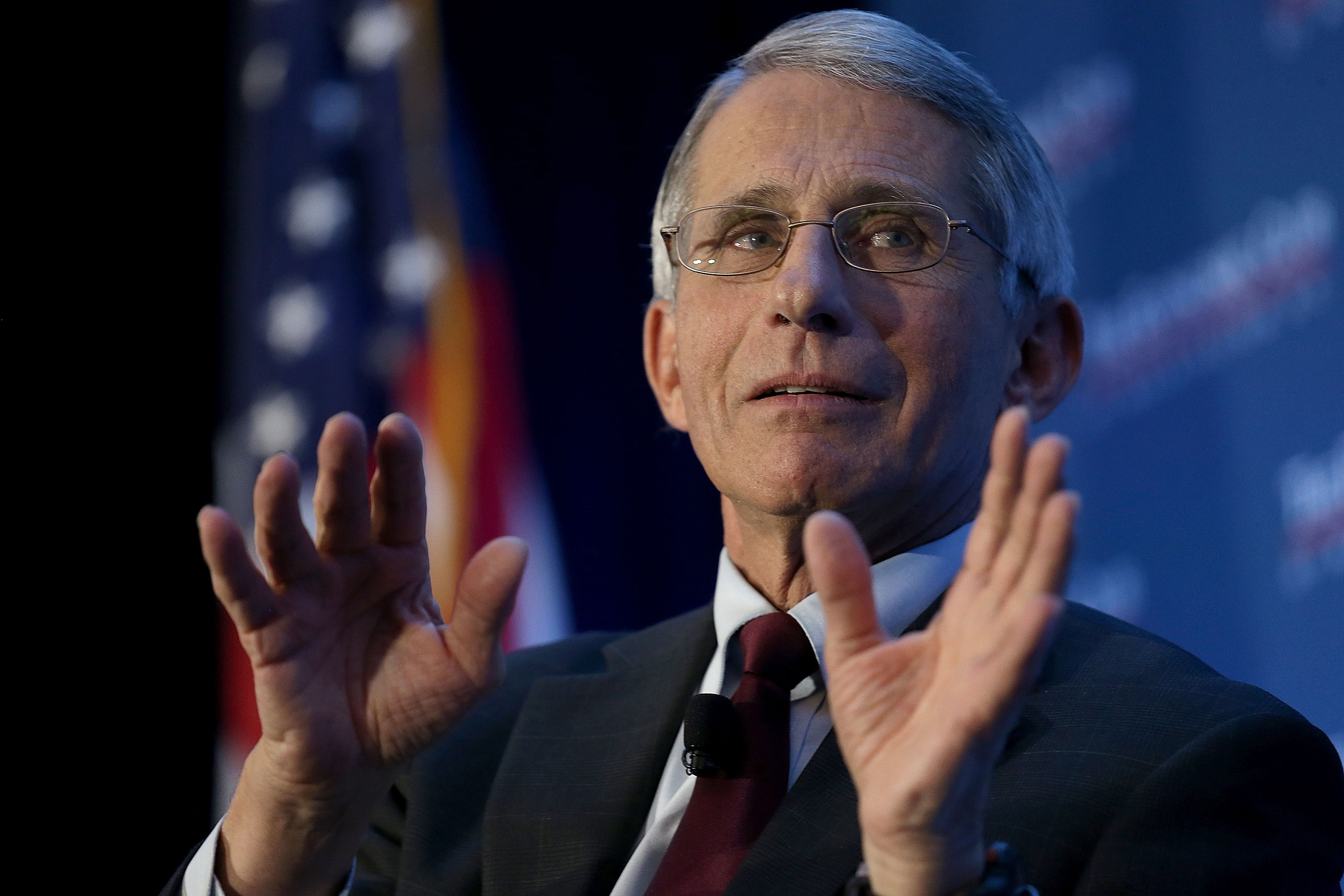 Win McNamee/Getty Images
Win McNamee/Getty ImagesDr. Anthony Fauci, the director of the National Institute of Allergy and Infectious Diseases, praised President Trump's recent White House coronavirus task force briefings, saying they have been "short and crisp."
Speaking during a Washington Post live event Friday, Fauci said he's pleased "that the President has gone out there, and is saying things now that I think [are] important" such as wearing masks and maintaining physical distancing.
Trump did change his tone sharply this week, admitting things might get worse before they get better and delivering a public health message.
Fauci and other members of the task force have been absent from the briefings this week.
He said that while it is important for members of the task force and doctors to brief the American people, he doesn't need to be at the press briefings "because what happens when you do that, people ask questions that have a little bit to do with health, and it gets mixed up." Instead he prefers to deliver his message through interviews and panel discussions.
"I welcome this — this half an hour that we have been talking about important issues. And members of the task force are getting out there. I would like to get out even more, because I think messaging is very important," Fauci told the Washington Post's Robert Costa.
Fauci added that he spoke with Trump over the phone last week about "encouraging to do the kinds of things that we're seeing been done right now."
"I don't want to get too much into the details. They don't like that when you're talking to the President... I found it was a positive call," he said.
A vaccine could stop Covid-19 "dead in its tracks," Fauci says
From CNN's Naomi Thomas
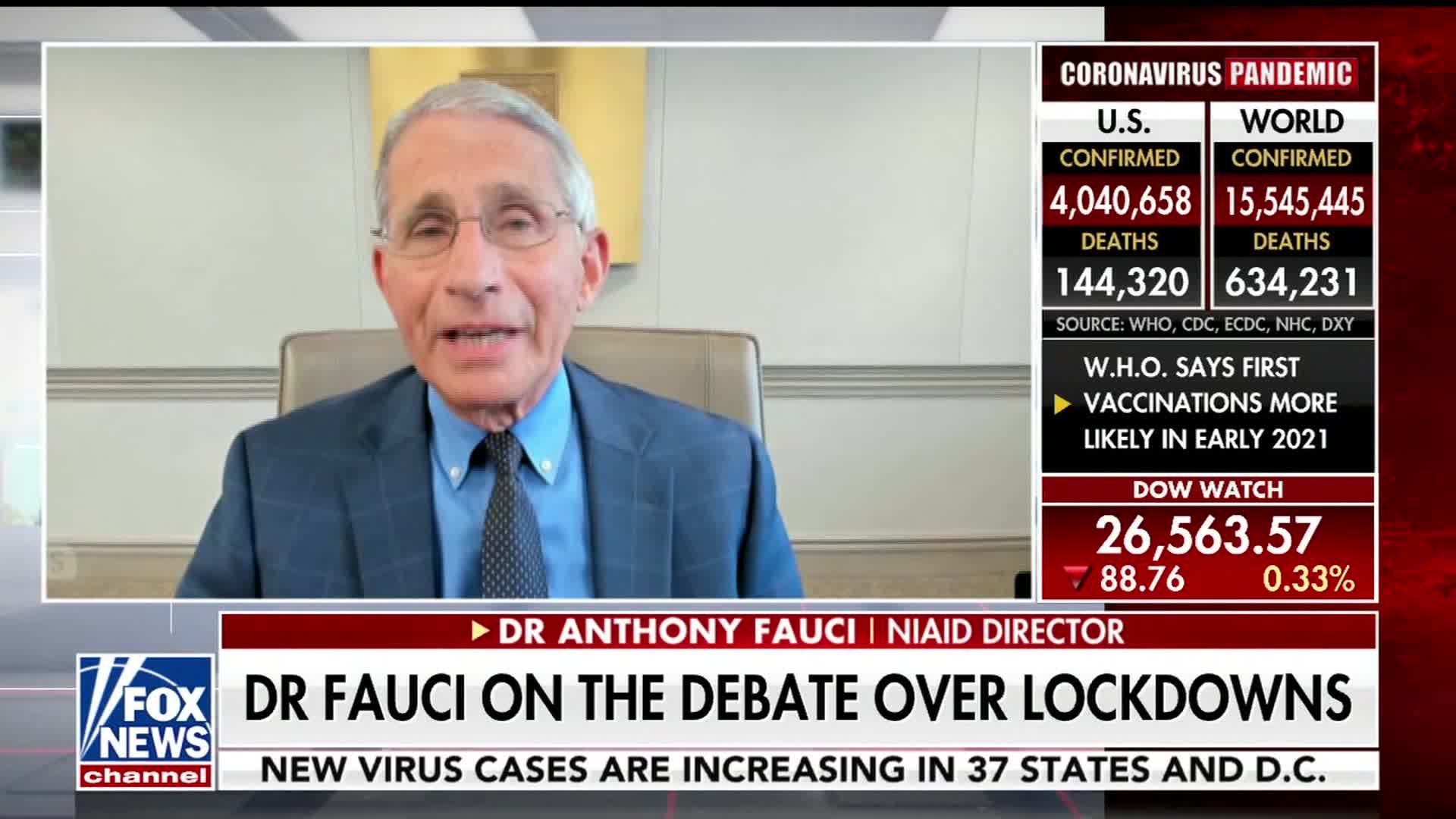 from Fox News
from Fox NewsConsistent public health measures can control the coronavirus pandemic, but a good vaccine “could really stop it dead in its tracks,” Dr. Anthony Fauci said on Fox’s America’s Newsroom Friday.
“And if we can do that at the global level, when we get a vaccine I think we could really stop it dead in its tracks.”
Fauci said that he is cautiously optimistic that a vaccine will be available in a reasonable time — “likely by the end of this year or the beginning of 2021.”
New York reports its lowest number of hospitalizations since mid-March
From CNN's Elizabeth Hartfield
New York state reported its lowest number of hospitalizations since March 18, Gov. Andrew Cuomo announced Friday.
The state reported 650 hospitalizations on Friday, about 56 fewer hospitalizations than Thursday. The state also reported the lowest number of individuals in intensive care units – 156 – since March 16.
The state reported nine new Covid-19 related fatalities yesterday. Seven of those deaths were in hospitals and two were in nursing homes, Cuomo said.
The infection rate in the state was at .98% positive.
Note: The numbers listed were released by the New York governor’s office and may not line up exactly in real time with CNN’s database drawn from Johns Hopkins University and the Covid Tracking Project.

 5 years ago
664
5 years ago
664 

